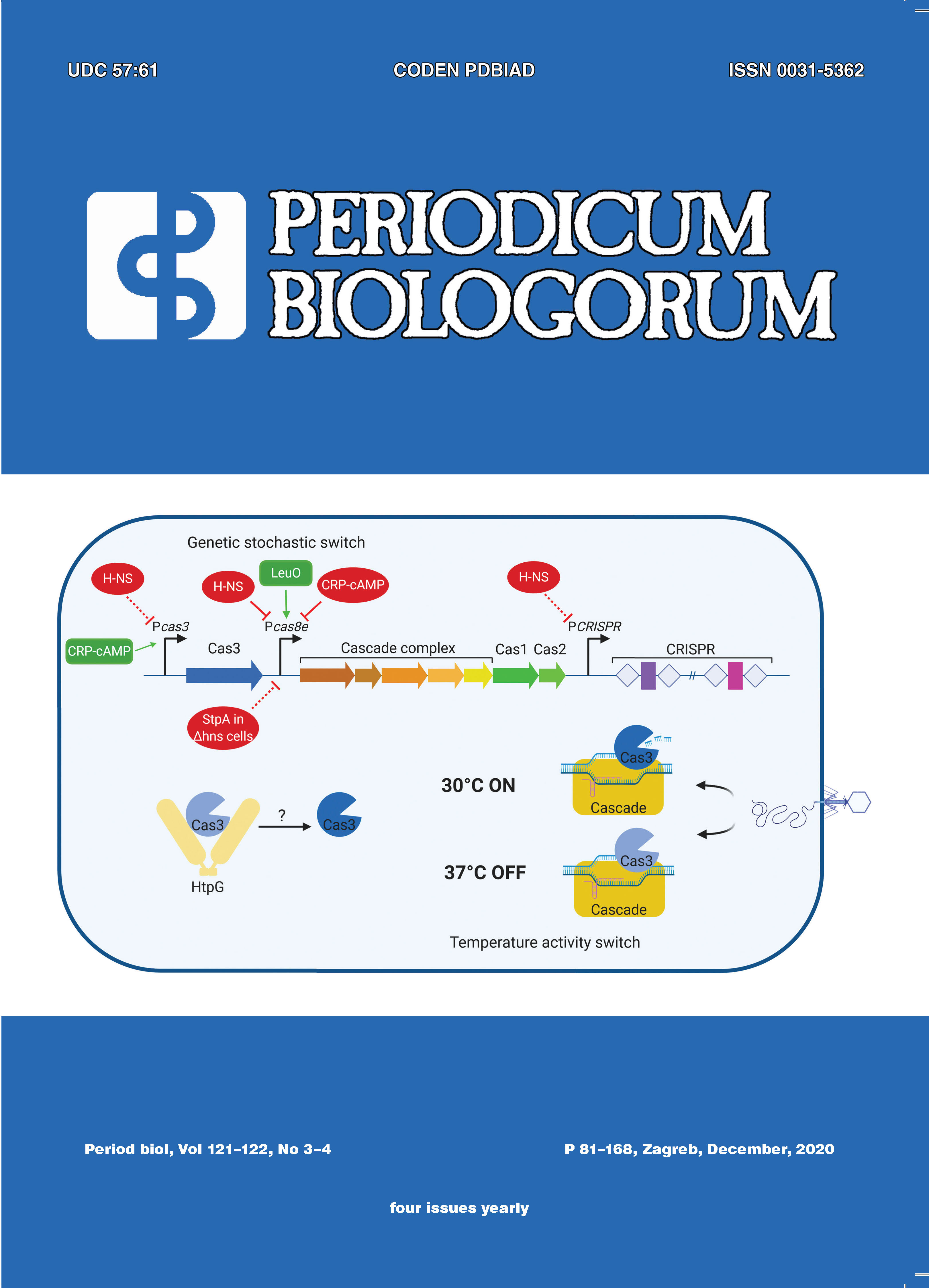CRISPR-Cas in Escherichia coli: regulation by H-NS, LeuO and temperature
CRISPR-Cas and temperature
DOI:
https://doi.org/10.18054./pb.v121-122i3-4.10994Abstract
CRISPR-Cas adaptive immune systems are present in many bacteria and archaea and provide protection against invading DNA such as phages and plasmids. These systems are very versatile and complex in their gene composition and genomic architecture. CRISPR-Cas systems are classified into 2 classes, 6 types and 33 subtypes although this number is not definitive and the research is ongoing. All CRISPR-Cas systems have been thoroughly investigated in order to better understand the mechanism of CRISPR immunity enabling its use as a tool in genome editing and other biotechnological applications. However, regulation of the CRISPR-Cas system is also very complex and still not fully understood; it must provide optimal protection without introducing harmful consequences to the host. In this review we give an overview on the regulation of the CRISPR-Cas system Class 1 Type I-E in Escherichia coli with the emphasis on the role of temperature in regulation of the CRISPR-Cas activity and the interplay of the key regulators H-NS and StpA repressors and LeuO antirepressor in regulation of cas gene expression and HtpG chaperone in maintaining functional levels of Cas3.
Downloads
Published
Issue
Section
License
The contents of PERIODICUM BIOLOGORUM may be reproduced without permission provided that credit is given to the journal. It is the author’s responsibility to obtain permission to reproduce illustrations, tables, etc. from other publications.


